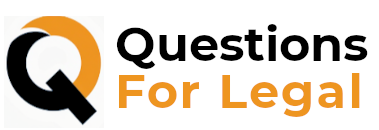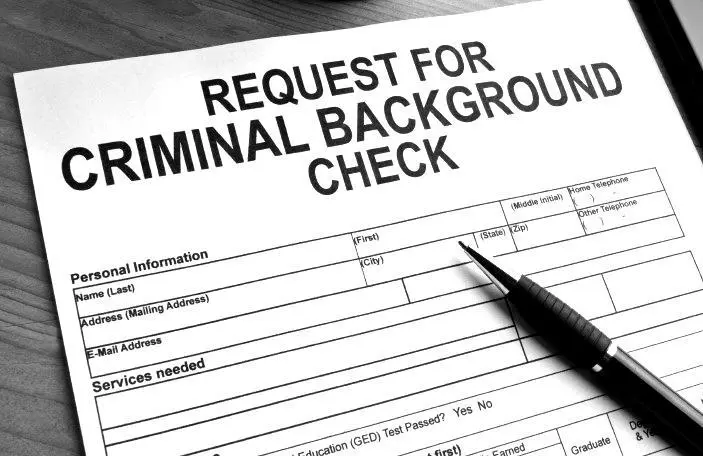When it comes to knowing someone’s past, particularly their criminal history, the desire for transparency and security often prompts individuals to seek access to another person’s criminal record. However, this seemingly simple quest for information is not without its legal complexities and ethical considerations. Before delving into the intricacies of obtaining such sensitive data, it’s crucial to first comprehend what a criminal record entails and why it’s imperative to navigate the process lawfully.
Table of Contents
- Definition of a Criminal Record
- Importance of Understanding the Legality of Checking Someone Else’s Criminal Record
- Legal Framework for Accessing Criminal Records
- Permissible Instances for Checking Another Person’s Criminal Record
- Potential Consequences and Risks of Illegally Accessing Criminal Records
- Alternatives to Accessing Another Person’s Criminal Record
- Final Thoughts
Definition of a Criminal Record
A criminal record, in essence, is an official document containing an individual’s criminal history, including any past arrests, convictions, or other relevant interactions with law enforcement. It serves as a comprehensive repository of an individual’s encounters with the criminal justice system, acting as a testament to their legal past.
Importance of Understanding the Legality of Checking Someone Else’s Criminal Record
The significance of comprehending the legality of checking another person’s criminal record cannot be overstated. It serves as a safeguard, ensuring that any pursuit of such sensitive information is conducted within the bounds of the law, protecting both the seeker and the subject of inquiry. Understanding the legal intricacies surrounding the access to and use of criminal records is essential in upholding the principles of privacy, fairness, and justice.
Legal Framework for Accessing Criminal Records
Understanding the legal parameters surrounding the retrieval of criminal records is pivotal to ensuring compliance with the law and safeguarding the privacy rights of individuals. A comprehensive grasp of the laws governing access to such sensitive information, along with the limitations and restrictions in place, is essential in maintaining the balance between transparency and personal privacy.
Overview of Laws Regulating Access to Criminal Records
Various laws and regulations govern the accessibility of criminal records, each designed to protect the privacy of individuals while simultaneously allowing for legitimate access when necessary. These laws often dictate who can access the records, the process for obtaining them, and the purposes for which they can be used. Familiarizing oneself with these regulations is crucial before attempting to retrieve someone else’s criminal record.
The Role of the Freedom of Information Act (FOIA)
The Freedom of Information Act (FOIA) serves as a crucial cornerstone in promoting transparency and accountability in the United States. While it primarily pertains to accessing government information, it also plays a significant role in regulating the accessibility of certain public records, including criminal records. Understanding how the FOIA intersects with the acquisition of criminal records is paramount for anyone navigating this legal landscape.
Limitations and Restrictions on Accessing Another Person’s Criminal Record
While there might be legitimate reasons to access another person’s criminal record, there are stringent limitations and restrictions in place to prevent unauthorized or unethical use of this information. These restrictions are in place to protect the individual’s privacy and prevent discrimination or undue harm. It is essential to be aware of these limitations and abide by them to ensure compliance with the law and ethical standards.
Permissible Instances for Checking Another Person’s Criminal Record
While the accessing of someone else’s criminal record is subject to legal restrictions and ethical considerations, there are legitimate circumstances where such checks are permissible and even necessary. Let’s explore some of these essential instances where accessing an individual’s criminal history is considered lawful and justifiable.
Employment Background Checks
Employers often conduct thorough background checks on potential employees to ensure the safety and security of their workplace and clientele. These checks commonly involve scrutinizing the candidate’s criminal record to assess any potential risks associated with their employment. While this practice is widely accepted, it is essential for employers to adhere to legal regulations and obtain the candidate’s consent where necessary, respecting their privacy rights throughout the process.
Rental Application Processes
Landlords and property managers frequently conduct background checks on prospective tenants as part of the rental application process. This step helps ensure the safety and security of the property and other tenants. Understanding an individual’s criminal history can aid in making informed decisions regarding tenancy, particularly in cases where the safety of the property and the surrounding community is a priority.
Volunteer and Professional Licensing Requirements
Certain volunteer organizations and professional licensing bodies may require individuals to undergo background checks before engaging in specific activities or obtaining professional licenses. This practice serves to uphold safety standards and maintain the integrity of the profession or organization, fostering trust and credibility within the community. Adhering to legal requirements and obtaining consent from the individuals involved is imperative to ensure a fair and transparent process.
Potential Consequences and Risks of Illegally Accessing Criminal Records
While the desire to obtain someone else’s criminal record may be fueled by genuine concerns, accessing this sensitive information without proper authorization can have severe legal, civil, and ethical implications. Let’s explore the potential consequences and risks associated with unlawfully accessing criminal records, shedding light on the significant ramifications that can arise from such actions.
Legal Penalties for Unauthorized Access
Unauthorized access to someone else’s criminal record is a violation of privacy laws and can lead to severe legal consequences. Depending on the jurisdiction and the specific circumstances, individuals found guilty of unlawfully accessing confidential records may face fines, criminal charges, or even imprisonment. It is crucial to recognize the legal boundaries and obtain the necessary authorization before attempting to access such sensitive information.
Civil Liabilities for Violating Privacy Rights
In addition to the legal penalties, unauthorized access to criminal records can result in civil liabilities, exposing the individual to potential lawsuits and financial repercussions. Violating an individual’s privacy rights can lead to claims of invasion of privacy, causing harm to the individual’s reputation, emotional distress, and other damages. Respecting the privacy rights of others is not only a legal obligation but also an ethical responsibility that must be upheld at all times.
Ethical Considerations and Potential Social Repercussions
Beyond the legal and civil implications, there are significant ethical considerations and potential social repercussions associated with the unauthorized access of someone else’s criminal record. Such actions can lead to the erosion of trust and the violation of fundamental ethical principles, negatively impacting personal and professional relationships. Maintaining ethical integrity and demonstrating respect for others’ privacy is crucial for fostering trust and maintaining a healthy societal fabric.
Alternatives to Accessing Another Person’s Criminal Record
While the desire to learn about someone’s criminal history is understandable in certain situations, it is essential to explore alternative, lawful methods that uphold the individual’s privacy rights and adhere to legal regulations. Let’s delve into some responsible and ethical alternatives that can be employed to obtain relevant background information without infringing on anyone’s privacy or violating the law.
Using Public Record Databases and Online Resources
Public record databases and online resources can serve as valuable tools for obtaining publicly available information about individuals, including certain aspects of their background history. These platforms often provide access to public records, court documents, and other relevant information that can offer insights into an individual’s past. However, it is crucial to verify the legitimacy and accuracy of the information obtained from these sources before making any judgments or decisions.
Requesting a Background Check with the Individual’s Consent
One of the most ethical and respectful ways to obtain someone’s criminal record is by seeking their explicit consent and cooperation. Requesting the individual to undergo a background check, with their full understanding and permission, not only respects their privacy but also fosters transparency and trust in the relationship. This approach upholds the principles of consent and respects the individual’s right to be informed about the information being accessed.
Seeking Professional Assistance from Legal Authorities or Private Investigators
When faced with complex situations that require a thorough background check, seeking professional assistance from legal authorities or reputable private investigators can be a prudent approach. These professionals possess the expertise and resources necessary to conduct comprehensive investigations within the bounds of the law. Relying on their specialized knowledge can ensure the acquisition of accurate and reliable information while maintaining ethical and legal standards.
Final Thoughts
The responsible pursuit of someone else’s criminal record demands a nuanced understanding of legal boundaries, ethical principles, and respectful practices. By prioritizing these aspects, individuals can navigate the complexities of obtaining background information while fostering a culture of transparency, fairness, and integrity. We hope this comprehensive exploration has provided valuable insights into the complexities of accessing criminal records, emphasizing the significance of responsible and ethical practices in this realm. Thank you for joining us on this insightful journey.

Meds is an attorney currently residing on the East Coast, where he practices law. While his primary focus lies in criminal law, he also has experience in family and personal injury law. His legal background enables him to navigate a variety of legal challenges and provide comprehensive assistance to his clients.





